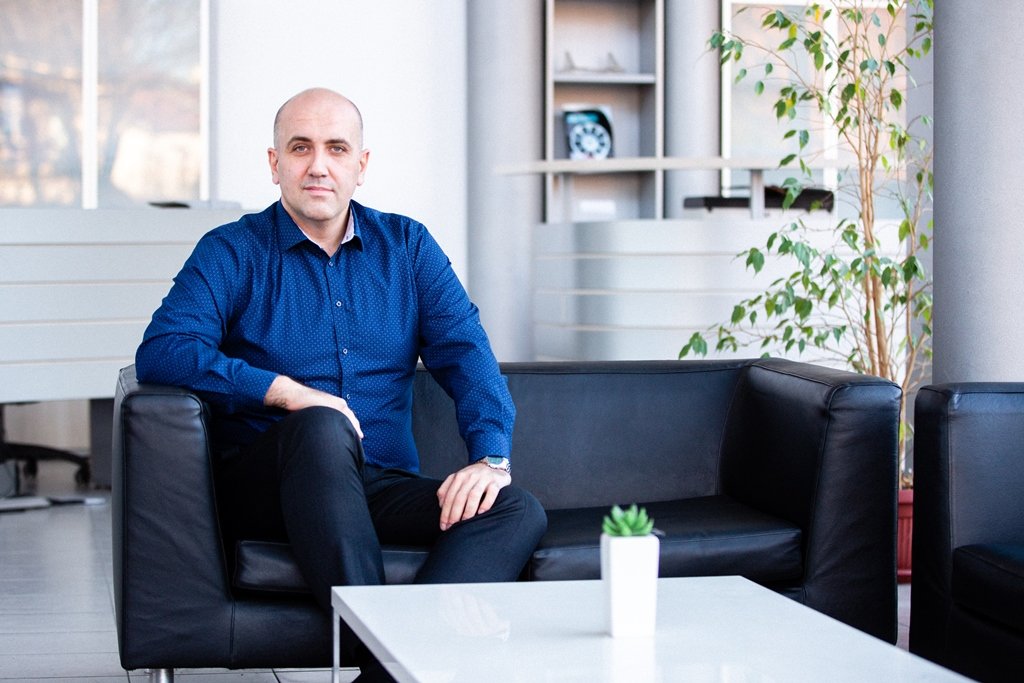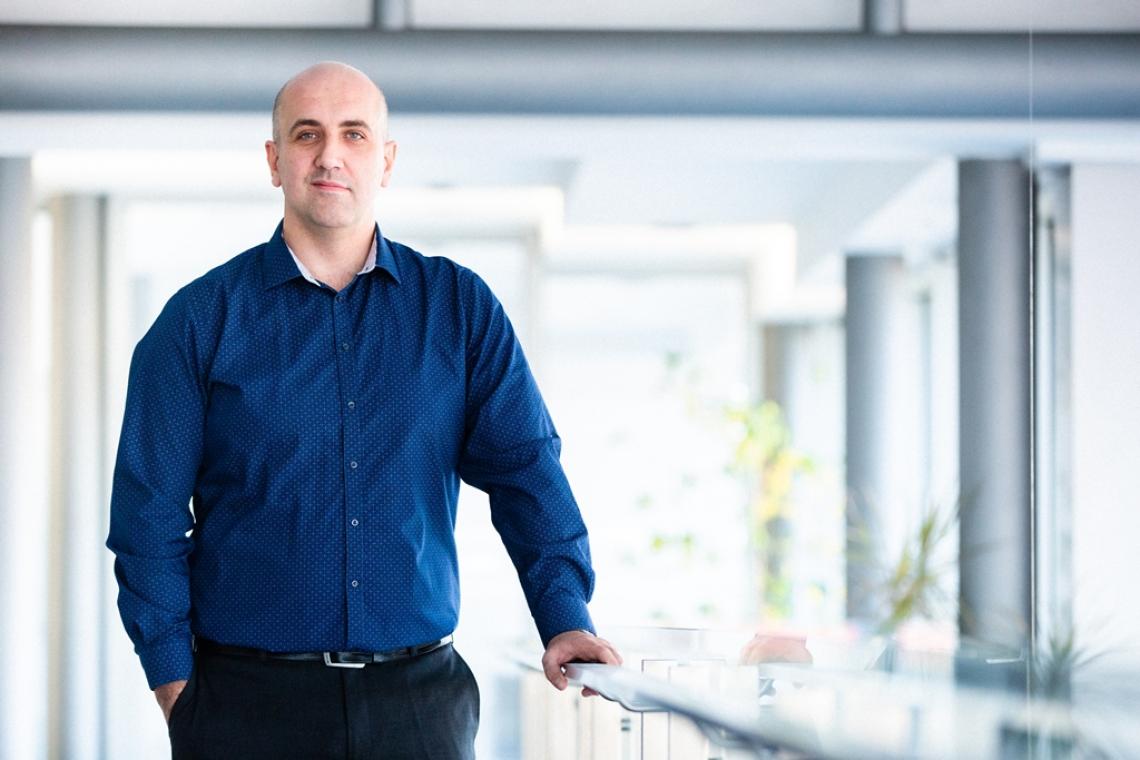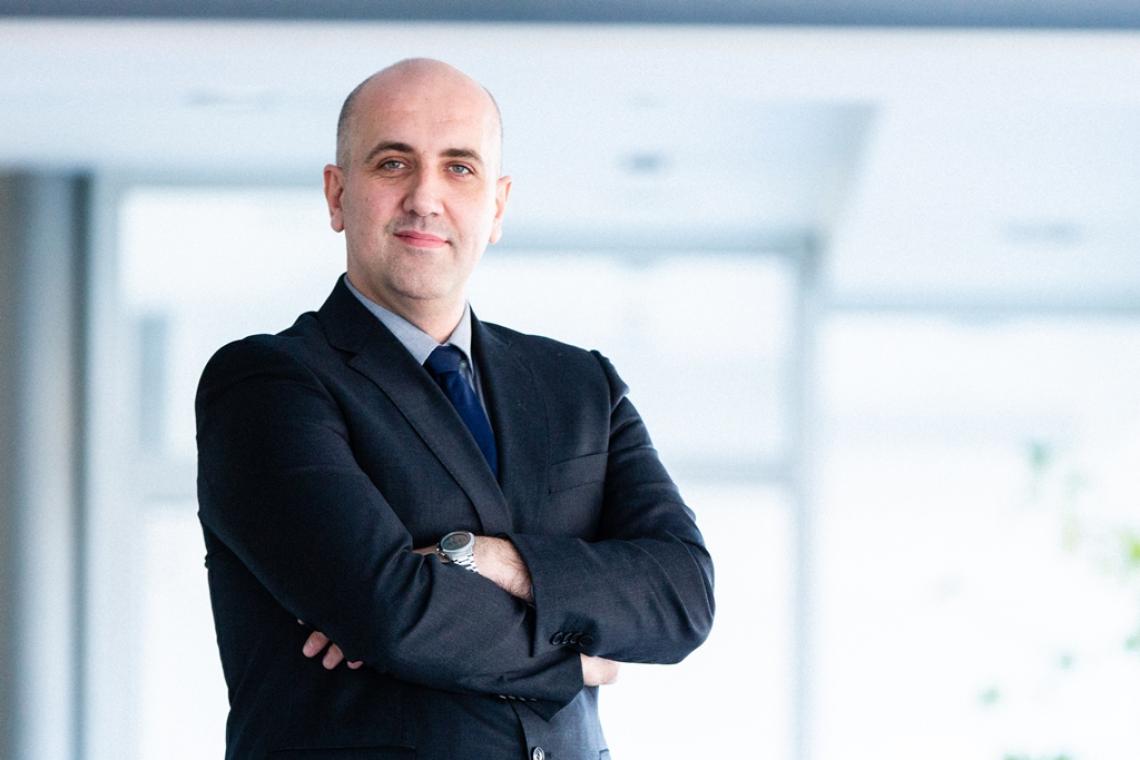Nedžad Alić was 12 years old when he came with his family to Switzerland from Kozarac in 1992. He got educated in Bern, held excellent jobs, and then, in 2011, he decided to go back to Bosnia and Herzegovina, where he established the company SwissBiH for international consulting and brokerage. Today, he is the executive director of EMKA Group in Goražde. In this interesting interview with Nedžad Alić you can read more about his motive to return, about his eight-year experience regarding the life in Bosnia and Herzegovina and the balance between the Swiss and Bosnian and Herzegovinian mentality and attitude to doing business and social life.
- You had a good job in Bern, a well-organized life and you were fully integrated in the Swiss society – what was your reason to go back to Bosnia and Herzegovina?
It was the same idea that I still harbour, which continues motivating me even today. I believe that we may not give up on the progress of this country! I wanted to come back and try to do something! I understood that I have the expertise I acquired in Switzerland and a background that enable me to transfer knowledge to persons in Bosnia and Herzegovina who have had no chance to acquire such knowledge and experience. That was the reason.
- Was it a difficult decision? Did you have any fears or doubts as to whether it was a good decision?
The process of thinking and decision making lasted for the whole two years. I spoke to various companies, I visited Bosnia and Herzegovina, I negotiated, learned about the situation in Bosnia and Herzegovina, was thinking, contacting various persons… Of course, I had my doubts and lots of questions about the reasons why I wanted to do it. On the one hand, I had a fairy tale life, a good job, a beautiful life in Bern. However, I always missed Bosnia and Herzegovina, our mentality, our region, the culture… I always say, in business matters, I am a typical Swiss. However, when it comes to private life, I am a Bosnian squared! Maybe it sounds as an unimportant thing, but the social life in Bosnia and Herzegovina has always been important for me. It is important that persons communicate regarding their emotions. Sometimes, there are too many emotions, also unnecessary emotions, that is true, but I have always missed the spontaneity and emotionality.
- What was your first impression when you came back to Bosnia and Herzegovina?
I was shocked, to be honest! I left Bosnia and Herzegovina when I was 12 years old and I got educated and grew up in Switzerland. And then I came back to this country that is still struggling with war consequences. When I realised how business was done, I was somewhat shocked. I was appalled by the extent to which people were still isolated and wrapped up in history. It absolutely should not be forgotten, but we should look forward, and I have not encountered such an attitude. What scared me most was the health sector. And then it happened that I had to go to the hospital in Sarajevo, where I had all the necessary care, everything was excellent! I had to learn that I had lots of prejudices in my head. It is simply as if someone were creating a dark image of Bosnia and Herzegovina in order to prevent us from going back! In any case, our diaspora has lots of prejudices when they go to Bosnia and Herzegovina and they search for excuses and reasons to see things in Bosnia and Herzegovina in a negative manner all the time, and that is not ok.
- What was your first job when you went back to Bosnia and Herzegovina in 2011?
My first job was in Tuzla, at a company that produces car seat covers. I was the executive director and I established it together with partners from Slovenia. When one of our clients, an Austrian company, bought the company, I decided to do something new, although I had the offer to stay. You know, it is always difficult, when you create something from scratch and then someone else comes to take it over. I took a one-year break for the most difficult job I ever had. I was in Berlin and helped my sister, who got a baby. I was taking care of her son, I was a babysitter, and it is the most difficult job there is. Hats off to all mothers! When the baby grew up a bit, I came back to Bosnia and Herzegovina and looked for a job. And then I saw the vacancy for the director of Centrotrans in Sarajevo and got in touch with them. Everyone was telling me that it was impossible to get a job at such a big company without solid connections. And I am still very angry about this – that people believe that nothing can be done without connections and that one cannot do anything on his or her own! I applied, they interviewed me, and I got the job! And that was it!
- What was the most important work experience for you in Switzerland, which is also the most important one for doing business in Bosnia and Herzegovina?
Communication! I have learned from my superiors how to communicate with workers, superiors, clients, I have learned all about modern management. I worked at the headquarters of the company Swissphone Wireless for ten years and that was my first real work experience, where I have learned everything I needed for my later work. Before that, I had done various things. You know, I was only 12 years old when I came to Switzerland and I had to catch up with lots of subject, especially regarding French, which is extremely important in Bern. It took some time for my sister and I to get to the point where we could attend classes. And during all that time, we also worked! We ironed clothes for other persons, did gardening work, etc. in order to get educated.
Creation of a new business culture
- In Sarajevo you established the company SwissBiH for international consulting and brokerage. Can you tell us more about the company and its operations?
I talked a lot with the Swiss partners and the Swiss Embassy in Bosnia and Herzegovina and I asked them what foreign companies in Bosnia and Herzegovina needed. First of all, foreign companies that come to Bosnia and Herzegovina do not wish to have anything to do with the administration, because it is too complicated for them. We offer them a full range of services, from market research, over legal registration, translation to search for staff and partners. We truly do our best in order to comply with all regulations, because foreign companies would not cooperate otherwise, and we also do it to protect our services. I got the idea because during my stay in Bosnia and Herzegovina, I met many local partners and companies that operate in compliance with a Western, well-regulated principle, and I entered into cooperation agreements with them on behalf of SwissBiH.
- Do you also search for business partners for successful local companies?
What matters extremely in my opinion is the fact that we are providing consulting services to our companies that wish to offer their services or products in a foreign market. For example, a very modern printing company in Bosnia and Herzegovina wanted to sell its products in Switzerland, and we sent inquiries, offers, etc., and found a company that is now printing its catalogues in our country. Another significant example is the fact that we found a US partner for two IT companies from Bosnia and Herzegovina that are now creating programmes for the US market. In Herzegovina, we are currently cooperating with a company that wishes to sell its medicinal herbs in the Middle East. There are also other smaller projects in tourism, but we mostly operate in the German speaking area, i.e. in Switzerland, Germany and Austria.
- If you compare your experiences in Switzerland and Bosnia and Herzegovina, what should in your opinion be done in Bosnia and Herzegovina in order to continue developing the economy and improve the level of performance?
Bosnians and Herzegovinians are an extremely diligent people. The situation is far from being such that people do not wish to work. But there has to be a paradigm shift! We have the political leadership that we have and people are somehow blocked in this vicious circle of negativity and fear. People here only need to be shown that it can be different! This is why I always respond to all questions about the reasons due to which I came back to Bosnia and Herzegovina and wish to explain that it is possible to work! One has to think differently and in a more strategic manner. If a foreigner comes and someone only aims to take several thousands of euros from him or her, nothing will happen. But if you are thinking about offering something to the foreign investor, so he or she can stay here and provide employment for several hundreds of persons, that is the right way of thinking. A positive aspect of doing business in Bosnia and Herzegovina is the fact that workers are extremely flexible and versatile, very intelligent! Workers here are not robots that only follow strict instructions and do not look right or left. If you manage to create a healthy relationship with workers, then they improve, innovate and make proposals all the time.
- You are now the executive director of EMKA Group, EMKA Bosnia and EMKA Bekto (the former Bekta Preciza) in Goražde, which have more than 650 employees, and you are only 39 years old. What is your experience regarding people in managerial positions in Bosnia and Herzegovina and do young persons have the possibility to hold such positions?
I have to admit that in Bosnia and Herzegovina, it is still possible to see the old socialist management. These older managers, who are almost all more than 50 years old, have the feeling that there is still someone watching their back and that the state will provide money in case of problems. There are no sufficient opportunities for young managers, innovation and new ideas. These people have no intention to change. When young people come to work at a company, they get the orders and are told ''you must do it like this!''. Nobody asks them about their ideas and opinions. So that they also learn the same procedure and repeat everything. For example, a director who is yelling and throwing things around during meetings… Such an attitude in management is obsolete and unproductive. There are no managers who are 35 or 40. In case of EMKA Group in Goražde, where I work now, the situation is completely different. We produce locking systems, and most of these systems are patented and we are a global leader in these products. We have more than 2100 workers at the Group, 16 production plants, and now we are also producing brakes for Deutsche Bahn. Five persons came back with their families from Germany and they are now working at this company. The whole managerial staff are 35 years old on average, even younger. It is a pleasure to work with these persons, because they are willing to change. I am truly delighted.
- Young people are continuously leaving Bosnia and Herzegovina and going abroad in order to work. Do you think that this trend can be stopped and how can they be motivated to stay?
We will have a conference on this topic in Bosnia-Podrinje Canton in March. It will be attended by managers of all bigger companies. The fact that young people are leaving is no longer a matter of money, but rather of the political atmosphere in which they live. Young people need to get away from the daily media influence, where they are served only negativity and fear. I have truly always been bothered by the terrible negativity in the society and the stress on negative things. I believe that it is high time to start thinking differently. Young people have to find their own positive microcosm and become involved in the development of a new direction, both in the economy and politics. This should be a top-down change, but if it is not happening, we have to initiate it ourselves. In addition to this, young people have a wrong opinion about the work abroad, which is created by our diaspora. When they come here on vacation, they wish to talk only about positive things. Young people therefore experience many disappointments when they go abroad to work.
- What are your further plans, are you planning to stay in Bosnia and Herzegovina?
I have never regretted the fact that I came back to Bosnia and Herzegovina. I am very satisfied at the company in Goražde. I could work there until my retirement, although it is early to think about that (laughter). In a broader perspective, my focus has always been on SwissBiH, as a driver of change in Bosnia and Herzegovina, but also in terms of attracting foreign companies to the country and creating employment and changing the business culture in general. I will always work on this and my contract with EMKA is such that it allows me additional engagement.
Links:



